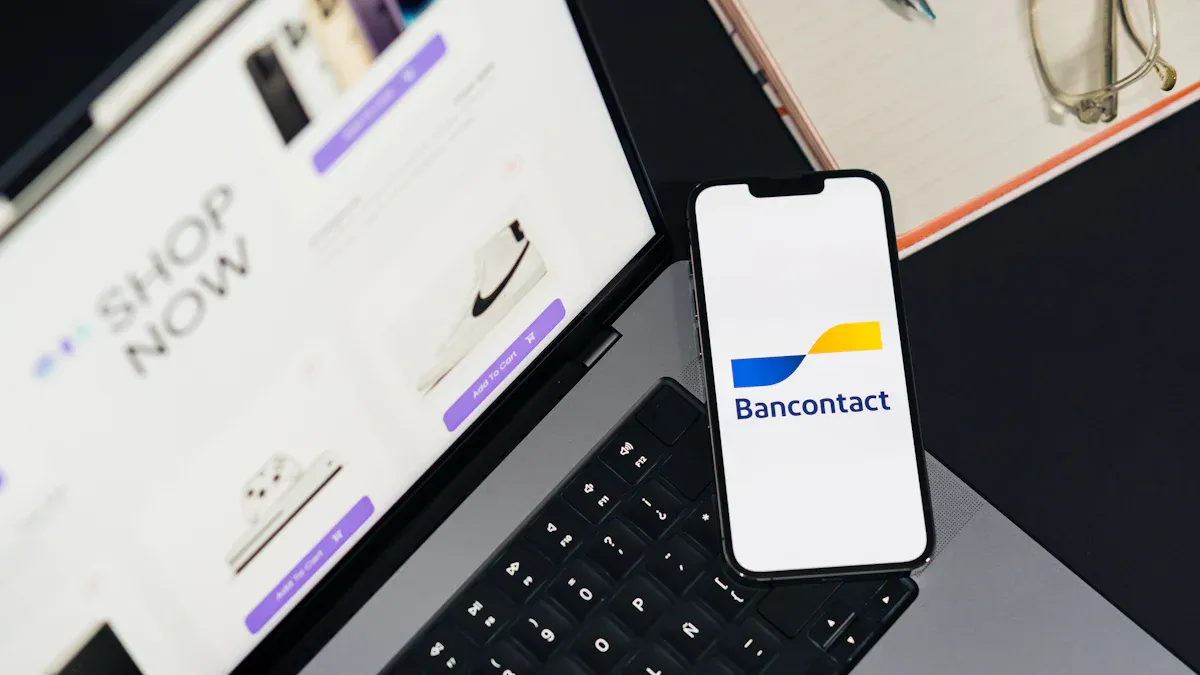- EasyCard
- Trade
- Help
- Announcement
- Academy
- SWIFT Code
- Iban Number
- Referral
- Customer Service
- Blog
- Creator
2025 Alipay International Remittance Support for Non-Chinese Citizens

Image Source: pexels
In 2025, if you are not a Chinese citizen, you cannot use Alipay’s international remittance function. Alipay stipulates that only users who have completed Chinese real-name authentication can remit, including users from Hong Kong, Macau, and Taiwan. Even if you can register for Alipay and bind an overseas bank card, it can only be used for payments, not for international remittances. Alipay offers cross-border payment services for students, such as tuition and rent, but these are not equivalent to full international remittance functions. You need to note that the official policy explicitly excludes non-Chinese citizens from using this feature.
Key Points
- Starting in 2025, only users who have completed mainland Chinese real-name authentication and hold a Chinese ID can use Alipay international remittance; non-Chinese citizens cannot activate this feature.
- Binding an international bank card or completing passport-based real-name authentication does not qualify you to use international remittance; Alipay strictly verifies identity and remittance purpose to ensure compliance.
- Non-Chinese citizens attempting to bypass restrictions face legal and security risks, potentially leading to frozen funds or penalties, and must comply with Chinese regulations.
- Users holding a Chinese Permanent Resident ID Card for foreigners can use international remittance; regular foreign passport holders cannot access this service.
- If you cannot use Alipay international remittance, you can choose legitimate cross-border remittance platforms like PayPal or Wise, ensuring compliant channels to safeguard funds.
Alipay International Remittance Restrictions

Image Source: pexels
Limited to Chinese Citizens
When using Alipay international remittance, you first need to know that this service is currently only available to Chinese citizens. Alipay clearly stipulates that only personal accounts that have completed mainland Chinese real-name authentication and uploaded ID photos can use the international remittance function. You also need to bind a Chinese mainland phone number and provide a quick-access savings card number, primarily used for identity verification.
If you are not a Chinese citizen, even if you can register for Alipay, you cannot meet these strict identity requirements.
Below are the user types currently eligible to use Alipay international remittance:
- Personal accounts that have completed mainland Chinese real-name authentication and uploaded ID photos
- Accounts linked to a mainland Chinese phone number
- Accounts providing a quick-access savings card number (e.g., Hong Kong bank savings cards are only used for identity verification)
If you only hold a foreign passport or have completed basic real-name authentication, you still cannot activate Alipay international remittance. Even binding an international bank card only allows payments, not international remittances.
Reasons for Non-Chinese Citizen Restrictions
You may wonder why non-Chinese citizens cannot use Alipay international remittance. The main reasons are threefold: identity verification, bank compliance, and regulatory requirements.
- Identity verification: You need to provide a Chinese ID, and Alipay’s system strictly verifies identity information. Foreign passports or other documents cannot pass system verification.
- Bank compliance: Hong Kong banks and other financial institutions must comply with regulations from the State Administration of Foreign Exchange during cross-border remittances. Banks strictly review the source, purpose, and authenticity of transactions. If you cannot provide compliant materials, banks will reject remittance applications.
- Regulatory requirements: The People’s Bank of China and the State Administration of Foreign Exchange require payment institutions to meet qualification standards, with compliant fund flows and robust risk controls. Alipay must enforce these policies to prevent money laundering and illegal fund flows.
When using Alipay in China, you may face other restrictions. For example, names exceeding 26 characters cannot complete real-name authentication, and accounts linked to foreign phone numbers may be blocked. You may also find that after binding an international bank card, the payment limit is low, some merchants do not support foreign card payments, and features like wealth management, transfers, or sending red envelopes are unavailable.
If you try to remit to China via third-party platforms (e.g., Remitly), you can set up an Alipay account and bind an international credit card, but whether funds arrive still depends on Chinese bank compliance reviews. If the transaction does not comply with China’s foreign exchange and payment policies, banks will reject it. The Chinese government continues to optimize payment experiences for foreign users, such as increasing single transaction limits to 5,000 USD, but these measures mainly apply to daily consumption, not Alipay international remittance.
Common Misconceptions for Non-Chinese Citizens
Real-Name Authentication ≠ International Remittance Eligibility
You may think that completing Alipay real-name authentication grants access to international remittance functions. This is a major misconception. Even if you’ve completed real-name authentication with a passport or other documents, Alipay will not grant you international remittance permissions. The system requires a Chinese ID, and only Chinese citizens can pass verification. Many non-Chinese citizens find their applications rejected during the review process because their identity information does not meet requirements.
Reminder: Even if you pass real-name authentication, you cannot directly gain international remittance eligibility. During verification, the system strictly checks your identity and remittance purpose. For example, some users remitting via Wise to an Alipay account with the purpose listed as “household use” were rejected, and funds were returned. Only purposes like “online procurement” with supporting orders and invoices may pass review. You need to ensure that both the remittance purpose and identity information are compliant, or rejection is likely.
Foreign Bank Cards and International Remittance
You may also mistakenly believe that binding an international bank card or using the international version of Alipay enables international remittances. In fact, Alipay allows you to bind foreign bank cards, such as Hong Kong bank savings or credit cards, enabling some payment operations in China. However, you cannot use these cards to activate international remittance functions.
- The international version of Alipay is designed for non-Chinese citizens, allowing you to top up prepaid cards with credit or debit cards for daily payments and collections. You can transfer to bank accounts in other countries or regions through international remittance functions, with a simple process supporting multiple currencies (e.g., USD, HKD, EUR), with a maximum single limit of about 50,000 USD, and a clear fee structure. However, specific conditions and fees vary by country and region, and some countries’ bank accounts cannot be directly bound.
- If you are a recipient, you need to report the remittance purpose to the bank. Generally, personal collections are limited to remittances from relatives or salary payments, and non-relative remittances may require reporting to the foreign exchange authority.
Summary: Binding an international bank card or using the international version of Alipay does not mean you can freely perform international remittances. You need to understand compliance requirements at each step to avoid remittance failures or fund returns due to misunderstandings.
Alipay International Remittance Recipient Account Requirements

Image Source: pexels
Chinese ID Holders
If you want to receive Alipay international remittances, you must hold a Chinese ID. Alipay has strict requirements for recipient accounts, and only Chinese ID holders can successfully receive international remittances. When operating, you need to note the following:
- The annual foreign exchange purchase limit is 50,000 USD, and the daily outbound remittance limit is also 50,000 USD.
- The remittance purpose must be authentic and accurate, without fabricated reasons.
- The recipient cannot be a financial institution, such as an investment company, securities company, gold exchange, futures exchange, or insurance company.
- You need to accurately fill in the remitter’s name and address information.
- Verification processes vary by remittance amount:
- Below 2,000 USD, banks can process directly.
- 2,000 USD to 10,000 USD requires review by the foreign exchange authority.
- Over 10,000 USD requires review by the State Administration of Foreign Exchange.
- For special purposes like study abroad, medical expenses, or international academic organization fees, limits may be relaxed, but verification is stricter.
- Financial institutions handling foreign exchange business will open a foreign exchange account for you and report relevant information to the foreign exchange authority.
Only if you meet the above conditions can you successfully receive Alipay international remittances. Otherwise, banks will reject your remittance application.
Foreign Permanent Resident ID
If you hold a Chinese Permanent Resident ID Card for foreigners, you can also use it as an Alipay international remittance recipient account. This ID proves you have long-term legal residency in China. Alipay will strictly verify your identity to ensure the information is authentic and valid. You need to follow the same standards as Chinese ID holders, providing relevant materials and information. Only then can you successfully receive international remittances.
Regular non-Chinese citizen accounts cannot receive Alipay international remittances. If you lack a Chinese ID or Permanent Resident ID, the system will automatically reject your receipt request.
Limits and Transfer Time Details
Applicable Only to Chinese Citizens
When using Alipay international remittance, all regulations regarding limits and transfer times apply only to Chinese citizens. Alipay sets different transfer limits based on your real-name authentication level. For example, Level 1 users have a lifetime limit of 1,000 USD, Level 2 users have an annual limit of 100,000 USD, and Level 3 users have an annual limit of 200,000 USD. If you use balance payments, the annual cumulative limit is 200,000 USD; if you use a bank card, the limit depends on the bound card’s own limits. When transferring to a bank card, the single transaction limit is 50,000 USD, and the daily limit is 200,000 USD. These limit standards apply only to Chinese citizens; non-Chinese citizens cannot access these services.
Tip: If you are not a Chinese citizen, even if you complete real-name authentication, you cannot access the above limits and services. The system will automatically recognize your identity and reject related operations.
Changes in Limits and Transfer Times
When performing Alipay international remittances, the transfer time is generally 1-5 business days. The actual transfer speed is affected by the processing efficiency of intermediary banks like Hong Kong banks and the receiving bank. During weekends or Chinese statutory holidays, bank processing times will be deferred to the next business day. Before operating, it’s recommended to confirm the specific transfer time with the recipient or receiving bank to avoid delays affecting fund usage.
You need to note that all transfer time and limit changes apply only to Chinese citizens. If you are a non-Chinese citizen, the system will not provide Alipay international remittance services or display related limit and transfer time information. You can only choose other compliant cross-border remittance methods.
Precautions and Alternative Suggestions
Compliance Risk Warnings
When attempting to bypass Alipay international remittance identity restrictions, you face multiple compliance risks.
You must strictly comply with Chinese laws and regulations and Alipay’s identity authentication requirements to ensure fund and information security.
- Legal compliance risks: Bypassing identity restrictions may violate anti-money laundering and anti-terrorism financing laws, especially in international trade and cross-border fund flows, potentially leading to legal disputes. Chinese regulators will impose penalties under the Foreign Exchange Administration Regulations and Personal Foreign Exchange Management Measures, with illegal foreign exchange trading facing high fines, and severe cases may incur criminal liability with up to five years of imprisonment or detention.
- Customer information leakage risks: Bypassing authentication may lead to leaks of sensitive information like ID numbers or phone numbers.
- Payment security risks: Using insecure network environments or non-compliant methods may expose payment information to hacker attacks, affecting fund security.
- Third-party agent risks: The Monetary Authority of Singapore requires cross-border remittances to go through banks or licensed financial institutions, prohibiting third-party agents. Using non-bank third-party agents may lead to account freezes due to money laundering or gambling-related violations. Over 670 cases of frozen bank accounts after remittances have been reported, involving about 13 million USD.
When using Alipay for financial operations in China, you need to complete real-name authentication. Level II accounts require three credible information sources for cross-verification, including identity, bank card, and telecom authentication. Most foreign users struggle to complete Level II authentication, limiting large-amount payments and wealth management functions. If you only use passport information, you cannot access more financial services.
Alternative Cross-Border Remittance Methods
If you cannot use Alipay international remittance, you can choose other legitimate channels for cross-border remittances. The table below lists several mainstream platforms and their features:
| Platform Name | Main Features and Services | Fee Details | Transfer Speed | Applicable Users |
|---|---|---|---|---|
| PayPal | Widely used globally, supports multiple platforms, fast and compliant withdrawal process | Higher fees for debit/credit cards, lower for bank accounts | Minutes for debit/credit cards, ~3 business days for bank accounts | Cross-border e-commerce, individual users |
| Wise | Low fees, transparent exchange rates, supports multiple payment methods | Free for first 600 USD remittance, transparent fees | Typically 2 business days | Cross-border e-commerce, individual users |
| TransferGo | Fixed fees, paid expedited transfers in some regions | Fixed fees | Typically 1 business day, 30 minutes in some regions | Cross-border e-commerce, individual users |
| Panda Remit | Internet-based, low-cost, convenient service | Fees as low as 9 USD | As fast as 2 minutes, typically 1 business day | Cross-border e-commerce, individual users |
| XTransfer | Online automated settlement, compliant limit management, competitive rates, focused on B2B trade | Compliant settlement, supports multiple currencies and local accounts | Fast for local receipts | Cross-border e-commerce, B2B enterprises |
| PingPong | Covers 200+ countries, supports 100+ currencies, rich payment licenses | Rich licenses, strong in e-commerce | Supports multiple payment methods | Cross-border e-commerce, some B2B |
| Airwallex | Global business accounts, multi-currency wallets, API-embedded financial services, suitable for tech companies | Tech-driven, wide service range | Fast transfers | E-commerce platforms, SaaS companies |
| WorldFirst | Multi-currency accounts and settlement services, high market recognition | Reasonable fees, traditional provider | Stable transfer speed | Cross-border e-commerce, SMEs |
You can choose a platform based on your needs. PayPal and Wise perform well in transfer speed and fees, with PayPal’s debit/credit card payments arriving in minutes and Wise offering free remittances up to 600 USD with about 2 business days for transfers. TransferGo typically takes 1 business day, with 30-minute transfers in some regions. Panda Remit has low fees and can arrive in as fast as 2 minutes. When choosing a platform, prioritize compliant banks and licensed financial institutions, use third-party agents cautiously, and focus on personal information protection and cybersecurity compliance to avoid frozen funds and legal risks.
In 2025, you cannot use Alipay international remittance as a non-Chinese citizen. You will face issues like real-name authentication difficulties, bank card binding restrictions, and language barriers. It’s recommended to:
- Monitor Alipay’s latest official policies and consult customer service for questions.
- Choose compliant cross-border remittance methods to avoid fund risks due to operational errors.
If you need to remit, ensure identity information and purposes are authentic to avoid non-compliant operations.
FAQ
Can you remit after completing Alipay real-name authentication with a passport?
After completing real-name authentication with a passport, the system will not enable international remittance functions. Only Chinese IDs or Permanent Resident IDs for foreigners meet the requirements.
Can you perform international remittances after binding a Hong Kong bank savings card?
You can bind a Hong Kong bank savings card, but it can only be used for payments. The system will not allow international remittance operations with this card.
Can you receive remittances from China using the international version of Alipay?
The international version of Alipay supports some cross-border payments, but you cannot directly receive funds sent by Chinese users via Alipay international remittance.
What to do if a remittance is rejected during review?
Check if the identity information and remittance purpose are compliant. Contact Alipay customer service for detailed reasons and solutions.
Can you remit to an Alipay account via third-party platforms?
You can try using platforms like Wise or PayPal, but whether funds arrive depends on Chinese bank compliance reviews.
After learning about the numerous restrictions for non-Chinese citizens using Alipay for international remittances, it’s clear that identity verification hurdles, compliance risks, and complex review processes make cross-border fund transfers exceptionally difficult. In the face of these challenges, you don’t need complicated workarounds; you need a platform that truly simplifies the process and ensures fund security. BiyaPay was created to solve these pain points. We support fast registration for global users, utilizing one-stop digital identity verification to completely move past the strict nationality and identity restrictions of traditional financial institutions. On the BiyaPay platform, you can remit funds to most countries and regions worldwide with a fee as low as 0.5%, achieving same-day delivery and completely revolutionizing your cross-border remittance experience. We also provide a real-time exchange rate converter and support the conversion between various fiat and digital currencies, allowing you to easily manage exchange rate risks. Say goodbye to cumbersome processes, and register now to start your new journey in efficient cross-border finance.
*This article is provided for general information purposes and does not constitute legal, tax or other professional advice from BiyaPay or its subsidiaries and its affiliates, and it is not intended as a substitute for obtaining advice from a financial advisor or any other professional.
We make no representations, warranties or warranties, express or implied, as to the accuracy, completeness or timeliness of the contents of this publication.




Contact Us
Company and Team
BiyaPay Products
Customer Services
is a broker-dealer registered with the U.S. Securities and Exchange Commission (SEC) (No.: 802-127417), member of the Financial Industry Regulatory Authority (FINRA) (CRD: 325027), member of the Securities Investor Protection Corporation (SIPC), and regulated by FINRA and SEC.
registered with the US Financial Crimes Enforcement Network (FinCEN), as a Money Services Business (MSB), registration number: 31000218637349, and regulated by FinCEN.
registered as Financial Service Provider (FSP number: FSP1007221) in New Zealand, and is a member of the Financial Dispute Resolution Scheme, a New Zealand independent dispute resolution service provider.



















